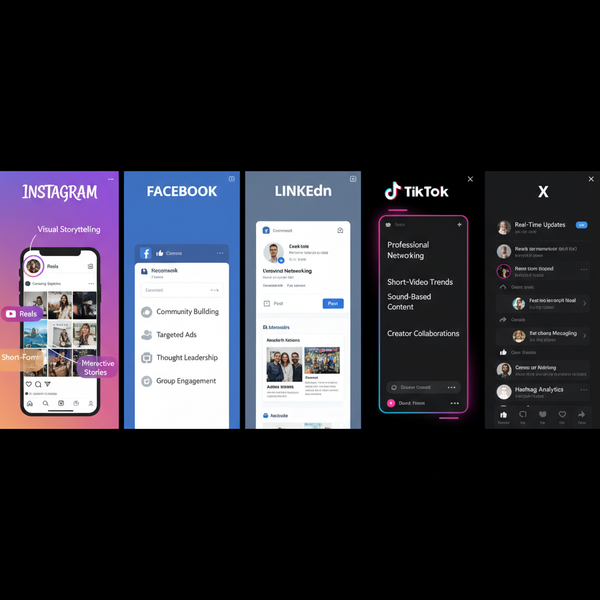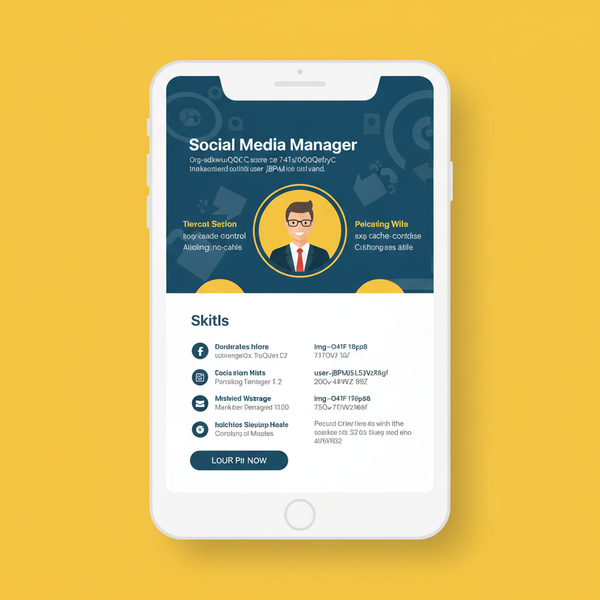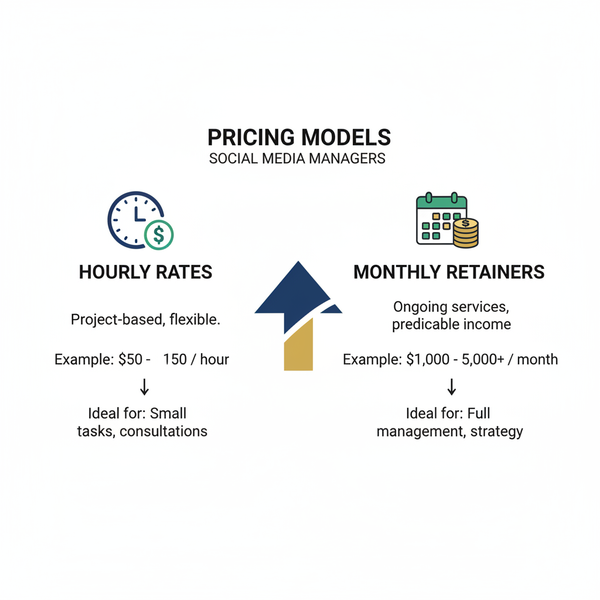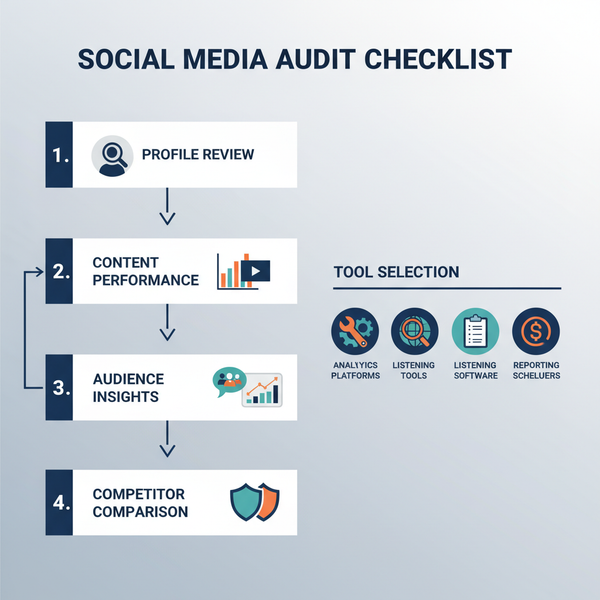Best Social Media Apps Similar Like Facebook in 2024
Discover the top social media apps like Facebook in 2024, from privacy-focused networks to decentralized platforms and professional communities.
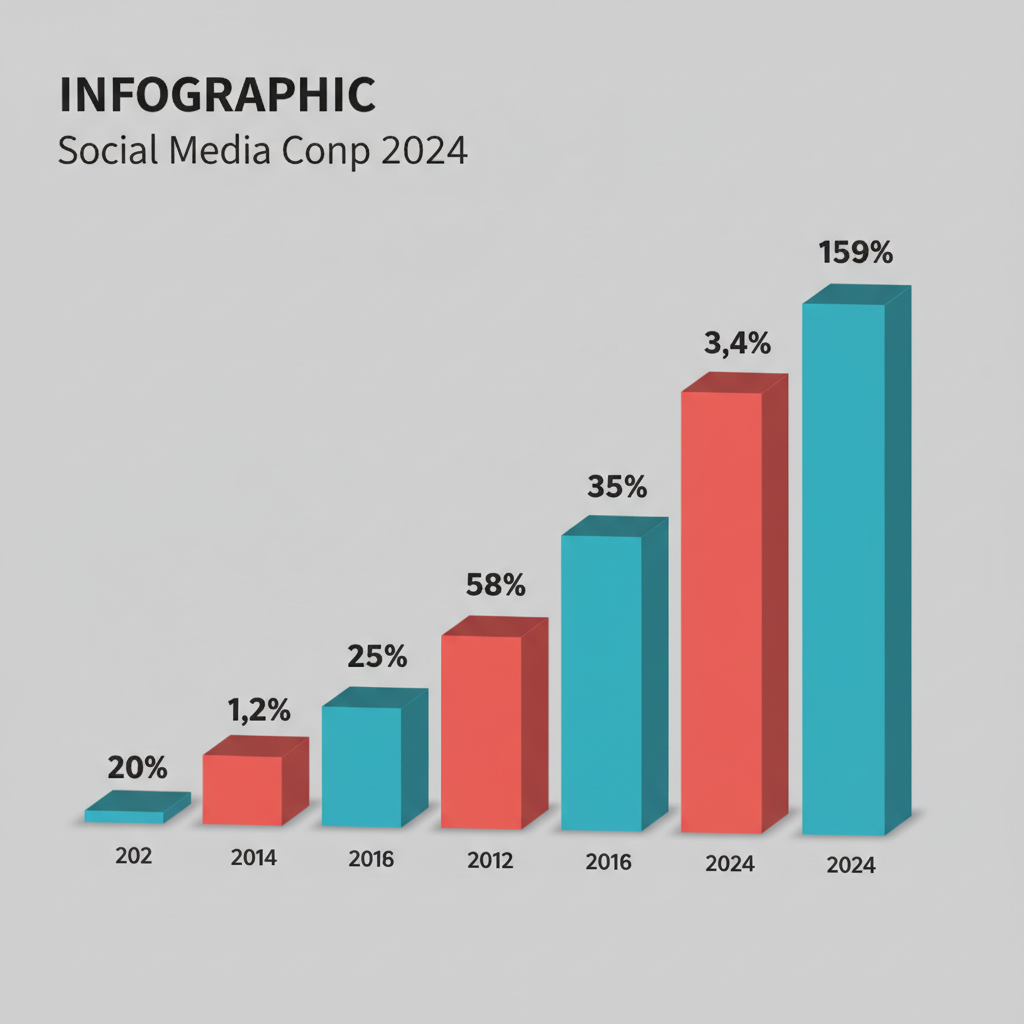
Introduction: Exploring Platforms Similar Like Facebook in 2024
Facebook has long dominated the social media landscape, but in 2024, more users are actively searching for platforms similar like Facebook. This shift stems from privacy concerns, changing algorithms affecting reach, and a desire for fresh features that suit evolving digital habits. Many now seek networks offering transparency, community control, and tailored engagement rather than relying solely on one centralized platform.
From visual-first apps to privacy-centric communities, today’s Facebook alternatives cater to diverse needs and preferences, giving users options that blend familiar tools with innovative design.

Criteria: What Defines a Platform Similar Like Facebook
When assessing social media apps similar to Facebook, here are the essential capabilities to look for:
- Newsfeed or timeline for browsing recent updates
- Groups or communities for niche interests
- Messaging systems (DMs, chats)
- Event creation and management
- Profiles and friend connections
- Multimedia posting (images, video, stories)
These criteria ensure that the platform offers a comparable interactive experience to Facebook, while potentially introducing unique twists that appeal to specific audiences.
Platform #1: Instagram
Instagram — owned by Meta — evolved from a photo-sharing app to a full-fledged social network. While more visual-first than Facebook, Instagram includes:
- Direct messaging
- Stories, Reels, and Feed posts
- Community engagement via hashtags and comments
- Shopping features for brands
Instagram’s algorithm-driven feed mirrors Facebook’s approach, and tight integration between the two makes cross-platform sharing effortless.
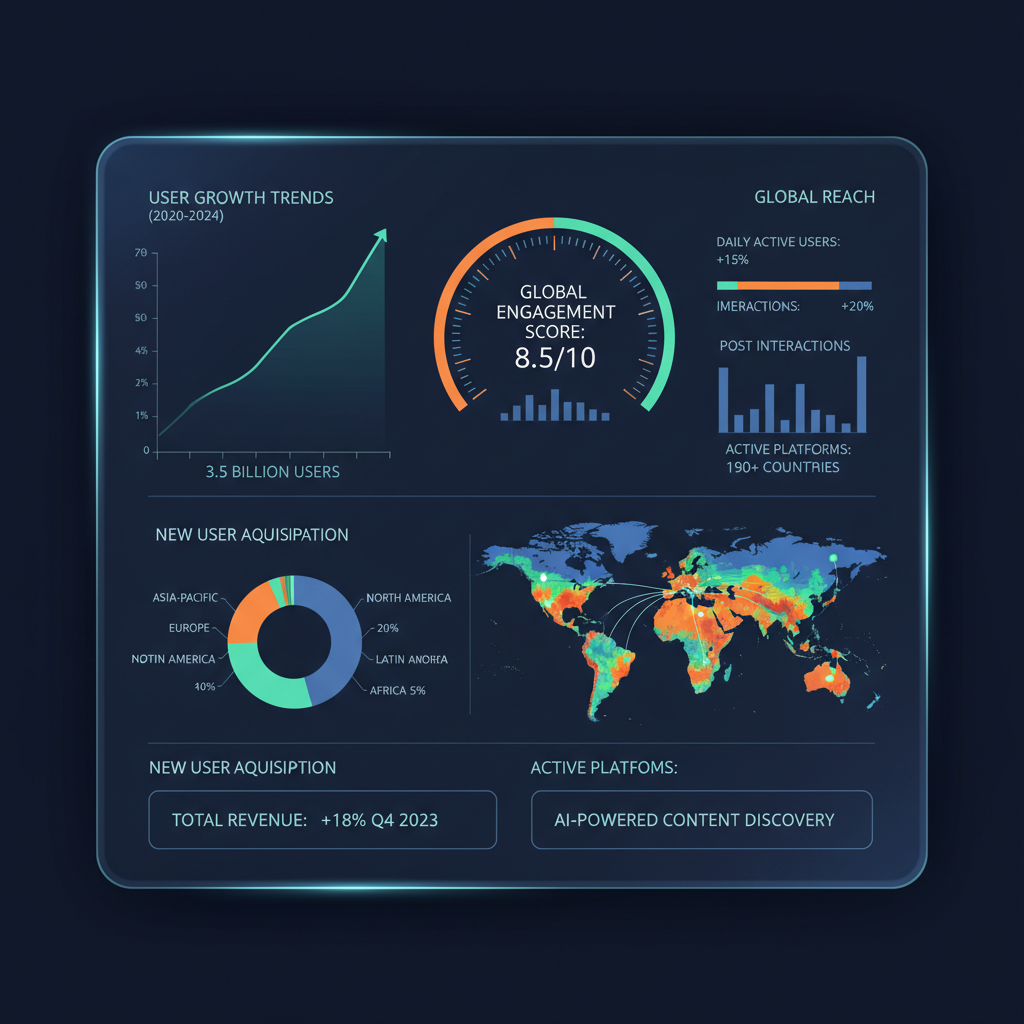
Platform #2: Twitter (Now X)
Twitter, rebranded as X, facilitates real-time communication and trending content. Unlike Facebook’s friend-oriented model, Twitter emphasizes public conversation:
- Short posts (“tweets”)
- Live updates from events and news
- Follower-based connections rather than mutual friendships
- Hashtag culture for discoverability
Its immediacy appeals to journalists, influencers, and users who crave instant engagement.
Platform #3: LinkedIn
LinkedIn, the top professional networking site, shares traits with Facebook such as group functionality and a newsfeed:
- Career-focused profiles and resumes
- Industry-specific groups
- Peer-to-peer messaging
- Event hosting, especially for webinars
Best suited for career development and professional relationship building rather than casual socialization.
Platform #4: MeWe
MeWe positions itself as a privacy-focused alternative, with no ads or algorithm-driven feeds. Key offerings include:
- Chronological newsfeed
- Groups for shared interests
- Voice and video chat
- Strong data privacy policies
It appeals to those who value data ownership and minimal surveillance.
Platform #5: Minds
Minds is an open-source social network advocating free speech, decentralization, and cryptocurrency rewards:
- Newsfeed and groups
- Token rewards for engagement
- End-to-end encrypted chats
- Transparent open-source code
Popular among tech-savvy users and privacy advocates.
Platform #6: VK
VK (VKontakte) ranks among the leading networking platforms in Russia and Eastern Europe, featuring:
- Facebook-like layout
- Multimedia sharing
- Public and private communities
- Integrated music and video services
Its UI closely resembles Facebook’s earlier design, aiding familiarity.
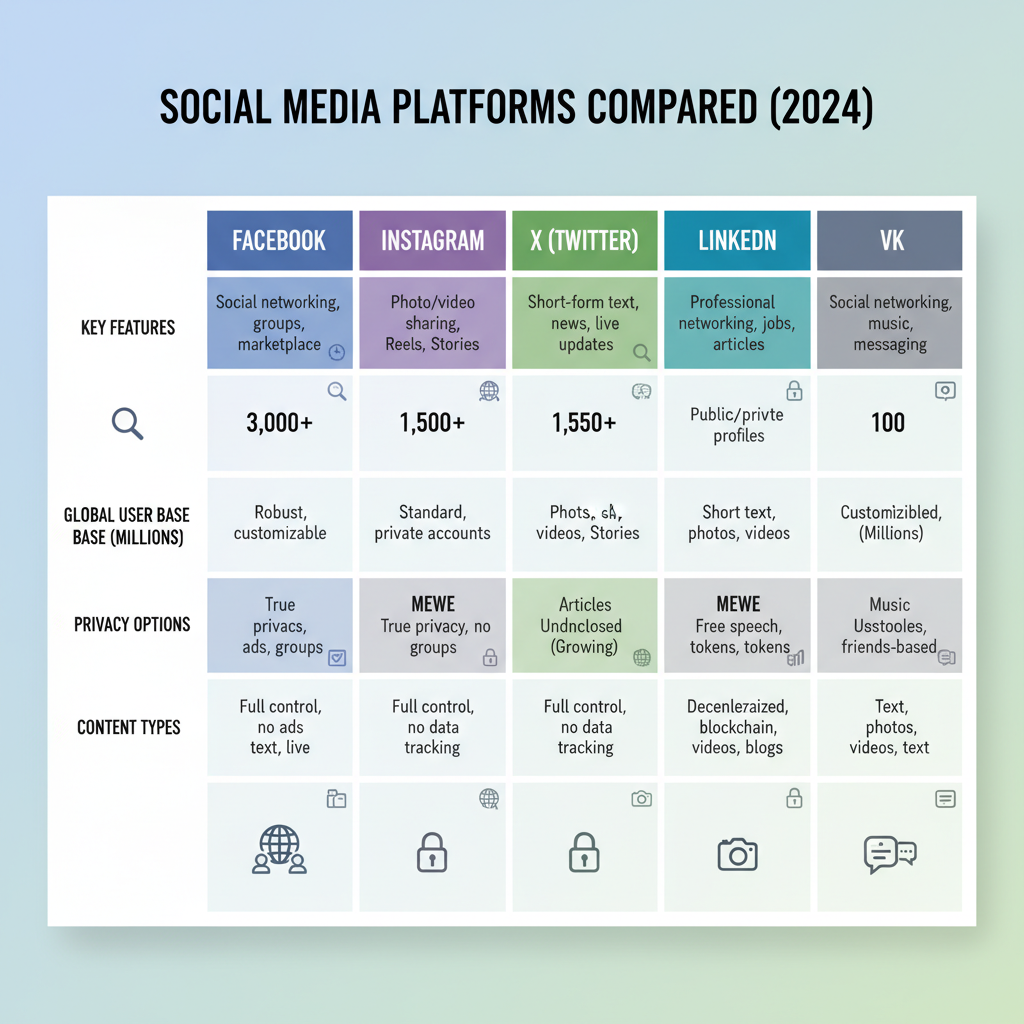
Platform #7: Diaspora
Diaspora is community-run and decentralized, comprising independently managed servers or “pods”:
- Full control over your data
- Multi-pod connectivity
- Adjustable profile visibility
- Hashtags and discussions
Ideal for open-web supporters who prioritize decentralization.
Platform #8: Mastodon
Mastodon operates on a federated model, where users join niche “instances”:
- Microblogging with extended character limits
- Community-focused moderation
- Interaction across instances
- Open-source infrastructure
Eliminates the risk of one central authority dominating.
Platform #9: Reddit
Reddit’s design differs from Facebook yet embodies community-driven interaction:
- Subreddits (topic-specific communities)
- Upvote/downvote ranking
- Anonymity through usernames
- Interactive AMAs
Focuses more on discussion than profile networking but shares Facebook’s group-engagement traits.
Platform #10: Nextdoor
Nextdoor connects neighbors via a local focus:
- Localized newsfeed
- Classifieds and recommendations
- Community event postings
- Address verification
Best for hyper-local networking and fostering face-to-face connections.
Quick Comparison Table
| Platform | Core Features | Privacy Focus | Main User Base |
|---|---|---|---|
| Visual posts, Stories, DMs, hashtags | Medium | Global, lifestyle/brand enthusiasts | |
| Twitter/X | Microblogging, trending topics | Low-Medium | News-driven users, influencers |
| Professional feed, groups, events | Medium | Professionals, recruiters | |
| MeWe | Chronological feed, private chats | High | Privacy-focused users |
| Minds | Newsfeed, crypto rewards | High | Tech-savvy, decentralization advocates |
| VK | Music, video, communities | Low | Russia/Eastern Europe audience |
| Diaspora | Decentralized pods, hashtags | High | Open-web proponents |
| Mastodon | Federated microblogging | High | Community-centric users |
| Subreddits, discussions | Medium | Topic-focused communities | |
| Nextdoor | Local feed, events | Medium | Neighborhood users |
Tips on Transitioning from Facebook to an Alternative
Switching from Facebook to a new platform requires thoughtful steps to preserve connections and content:
- Export your data – Download photos, posts, and message history.
- Reconnect with friends – Use search tools, hashtags, or contact imports.
- Learn privacy settings – Each network offers different privacy controls.
- Adapt your posting style – Different formats and cultures may apply.
- Join communities – Foster engagement similar to that on Facebook.
Conclusion: Selecting Your Ideal Facebook Alternative
In 2024, choosing a social media platform similar like Facebook means balancing familiarity with new experiences. Visual-focused users may gravitate toward Instagram, while decentralization fans might select Mastodon or Diaspora. Professionals benefit from LinkedIn’s networking, while privacy advocates lean toward MeWe or Minds.
Whether your priority is personal expression, career growth, community building, or safeguarding your data, there’s a diverse range of networks to meet your needs. Explore, experiment, and find the ideal platform that enriches your digital life.
Ready to try something new? Start by testing one or two of these alternatives today — your perfect online community could be just a click away.

